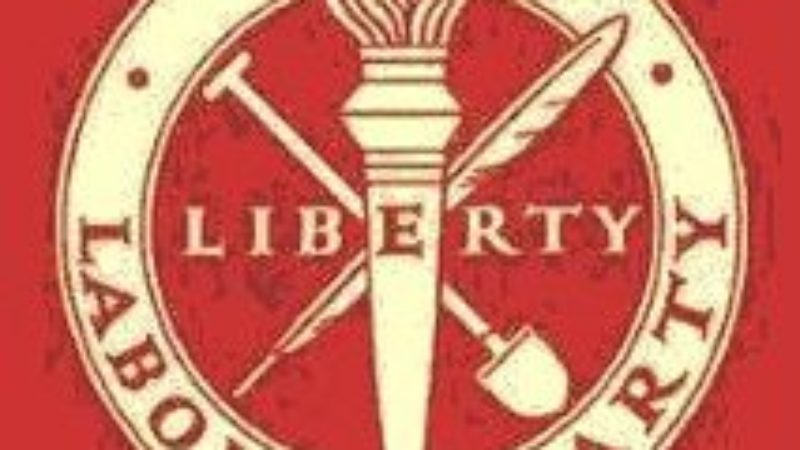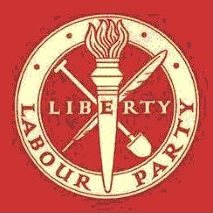
‘Liberty’, Liz Kendall and Lisa Nandy argue in a collection of essays published by Compass yesterday, ‘should be reclaimed as a defining ideal of left of centre politics in England’.
It was a nice coincidence I read colleague David Carpenter’s wonderful commentary on Magna Carta the same week Finding Our Voice. Making the Twenty First Century State came out. Liberty is an important theme in British politics 800 years after Magna Carta was sealed, and inevitably I was thinking about contemporary parallels.
Let’s start with bad King John. David Carpenter describes John as a trickster, and a man who enjoyed the game of politics too much. He liked to trim and tack, to constantly mess around with details that shouldn’t have concerned a monarch, all in the name of making himself look good. All tactics and no strategy, this clever man ended up being castigated by his subjects as capricious tyrant. When he taxed his people too much to pay for a foreign war, John was forced to concede to the demands of a rebellion of England’s regions and cities. 800 years ago in June 1215, he agreed to the Magna Carta before dying an ill and broken man a year later the age of 49.
No English politician now is as anywhere near as bad as King John. But it’s easy to compare the capricious trickery of George Osborne with the thirteenth century tyrant. In the last fortnight, we’ve seen a budget that was all tactics and no plan, the use of a select committee to trap for Ed M on VAT and a plot to oust the speaker.
I’m not making a partisan point: Gordon Brown, whose departure from the House of Commons I don’t lament, got wrapped up in the same kind of shallow effort to find pressure points of difference not find common ground.
John, George, Gordon share a love of the gossip and the game. They imagine power is about outwitting rivals not creating effective action for the common good. Amidst the web within which they wrap their rivals, there’s no room for a serious strategy to improve the country. We end up with a politics that is nothing but moves and counter-moves. In these times, any plan needs to begin with the concept that was central to Magna Carta – liberty.

Magna Carta did not found English democracy. It does not mark the superiority of English political traditions to European or even Asian ways of doing things. But it was one particular way of challenging capricious central power that resonated here for a long time. Its solution to John’s tyranny was not individualistic. The rebels’ effort to stitch together a coalition of diffuse interests by reflecting the liberties of each might be a model for our politics now.
For the authors of Magna Carta, ‘liberty’ is not a set of abstract rights, defined in principle but with no account of how they’d be put into practice. This is no Declaration of Human Rights. Instead, it defines liberty as the practical capacity people have to access institutions that can put wrongs right. Freedom is not freedom from interference, but the liberty to negotiate and be heard by the institutions that rule our lives whether (in 1215) in court, city corporations or before the king.
A similarly practical account of liberty should be Labour’s response to the capricious tyrannies sustained by this Conservative-led government. As we’ve argued in this column before, there are too many places in Britain today where our lives are ruled by forces out of our control: public services which don’t listen; politicians and bureaucrats who don’t trust people to make their own decisions and instead try to micro-manage from Whitehall; an inhuman housing market; a financial sector that is irresponsible and, still, out of control.
The answer is not – not most of the time – to increase regulation. In Britain the regulatory road has run its course, as we see every new regulation is gamed by the big corporates, and we end up with a new form of despotic power.
The answer is to diffuse authority instead. We need stronger local councils, with a public voice built into the way they work; we need individuals and groups to have more power in shaping the public services they use; we need workers to have a say in the businesses they work for. We need, probably too, to break up organisations that are big enough to wield despotic power, banks and energy firms above all. In their place, we might have a bias in favour of businesses rooted in particular cities and regions, instead of rootlessly flitting across the globe in search of the next tranche of cash.
That means, as Kendall and Nandy argue, putting liberty at the centre of Labour’s politics. ‘Liberty’, as they say, ‘is not an abstract slogan’. It is a social phenomenon, about our capacity to shape our lives through negotiation and dialogue with others.
Work by Compass in Finding our Voice gives countless examples of how this new left politics of liberty can be put into practice; institutions in cities and regions leading economic growth, more democratically run public institutions (why not start with universities?); electing license payers on the BBC’s board of governors; care users have greater role shaping their individual care packages. The blue Labour triad of regional banks, vocational institutions and workers on boards is a good start. Its not about a new ideology, but instead a new model for how institutions work in a more democratic fashion.
The solutions aren’t the same as those needed in 1995, let alone 1215. But there is a long-running story in England about institutions where people don’t feel bossed around, but are free to forge their common destiny, on a scale where they can be heard. It’s that story which will decide Labour’s future.




More from LabourList
‘Forget New Year – for Labour, discipline done well has to be their year-long resolution’
EXCLUSIVE: New Year Message from Anna Turley
Which Labour ministers did the most broadcast interviews in 2025?